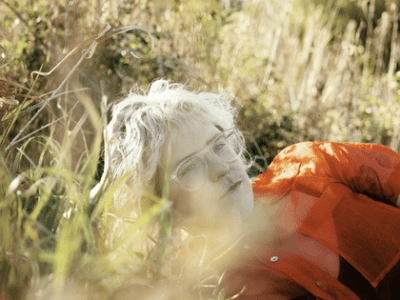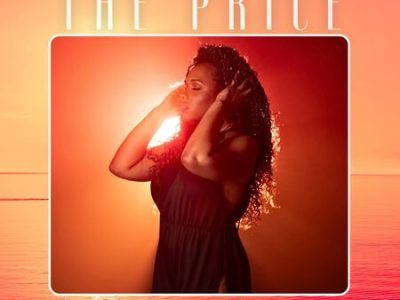The Role of Legal Representation in Protecting Creative Rights in Entertainment
Creativity drives the entertainment industry, fueling everything from blockbuster films to chart-topping albums. Behind the glitz and glamour lies a web of legal complexities that safeguard the intellectual property of artists, writers, and creators. Without strong legal representation, creatives are at risk of exploitation, infringement, or unfair practices that could undermine their work and livelihoods. Engaging with experts, like a New Jersey Long Term Disability Lawyer, can also serve as a reminder that legal advocacy isn’t limited to specific issues but extends to protecting a wide array of rights for individuals navigating complex systems.
The importance of legal protection in the entertainment world cannot be overstated. Whether through contracts, copyright claims, or dispute resolution, having knowledgeable legal counsel ensures that creative professionals retain ownership over their ideas and receive fair compensation for their efforts. As the industry continues evolving with new technologies and platforms, legal representation is no longer a luxury but a necessity.
The Foundations of Creative Rights in Entertainment
Creative rights are the backbone of the entertainment industry. At their core, they ensure that creators maintain ownership of their intellectual property (IP), whether it be a screenplay, a song, or a painting. Intellectual property laws like copyright, trademark, and patent protections provide creators with the legal framework to claim their rights and defend their work against unauthorized use. However, these laws are often complicated, and their enforcement requires specialized expertise.
For example, copyright law grants creators the exclusive right to reproduce, distribute, and display their works, but disputes often arise when these rights are violated. Streaming platforms, social media, and digital sharing have created an environment where infringement can occur in seconds, often globally. Without legal representation, creators may find it nearly impossible to combat such violations effectively. Attorneys experienced in entertainment law advocate for creators, ensuring that their intellectual property is respected and that any unauthorized use is addressed swiftly and effectively.
Contracts are another essential component of protecting creative rights. Agreements between artists, producers, and distributors outline how rights are shared, who benefits financially, and under what conditions. Unfortunately, not all contracts are created with the creator’s best interests in mind. Many artists, particularly emerging ones, sign agreements without fully understanding their implications, potentially losing control over their work or income. Legal professionals can review, negotiate, and enforce these agreements, ensuring that creators are not exploited.
Challenges in the Evolving Entertainment Landscape
The entertainment industry is rapidly changing, driven by technological advancements, shifting consumer habits, and global connectivity. While these developments create exciting opportunities, they also present unique challenges to protecting creative rights. For instance, the rise of artificial intelligence (AI) has blurred the lines of authorship. Who owns a piece of art generated by an AI tool? What rights does the algorithm’s creator hold versus the program’s user? The legal system is only beginning to address these questions, making the role of attorneys more critical than ever.
Social media is another arena where creative rights are frequently tested. Platforms like TikTok and Instagram encourage content sharing, but often at the expense of original creators. Viral trends can strip credit from the originators, leaving them without recognition or compensation. Legal representation ensures that creators can seek recourse when their work is exploited in these spaces, whether through takedown notices, cease-and-desist letters, or litigation.
Additionally, international markets have introduced complexities in enforcing creative rights. What happens when an artist’s work is copied and sold in a country with different intellectual property laws? Navigating such scenarios requires a deep understanding of global legal systems and the ability to collaborate with international legal teams. Attorneys in this field work tirelessly to close these gaps, ensuring that creators’ rights are upheld, no matter where infringement occurs.
The Broader Impact of Legal Advocacy
Legal representation for creative rights doesn’t just protect individual artists—it elevates the entire entertainment industry. When creators feel secure in their ownership and compensation, they are more likely to take risks and push boundaries, leading to more innovative and impactful work. Strong legal protections foster an environment where creativity can thrive, unburdened by the fear of exploitation.
Moreover, legal advocacy ensures accountability among industry players. By holding corporations, studios, and distributors to ethical standards, attorneys contribute to a fairer and more transparent ecosystem. This benefits creators and audiences, who gain access to authentic, high-quality content produced by individuals who are appropriately credited and compensated.
The work of legal professionals also extends beyond courtrooms and contract negotiations. Many engage in policy advocacy, pushing for legislative changes that strengthen creative rights and adapt to the evolving entertainment landscape. Whether lobbying for stricter copyright protections or raising awareness about the impact of new technologies, these efforts ensure that the legal framework keeps pace with industry changes.
Conclusion
The entertainment industry thrives on the creativity of its artists, writers, and performers. Yet, without robust legal protections, this creativity is vulnerable to exploitation and misuse. Legal representation is pivotal in safeguarding creative rights, empowering individuals to retain control over their intellectual property, and achieve fair outcomes. From navigating complex contracts to combating infringement, attorneys provide the expertise and advocacy that creatives need to succeed in a competitive and ever-changing industry. By supporting the rights of creators, legal professionals protect individual interests and nurture a vibrant and innovative entertainment landscape for generations to come.


